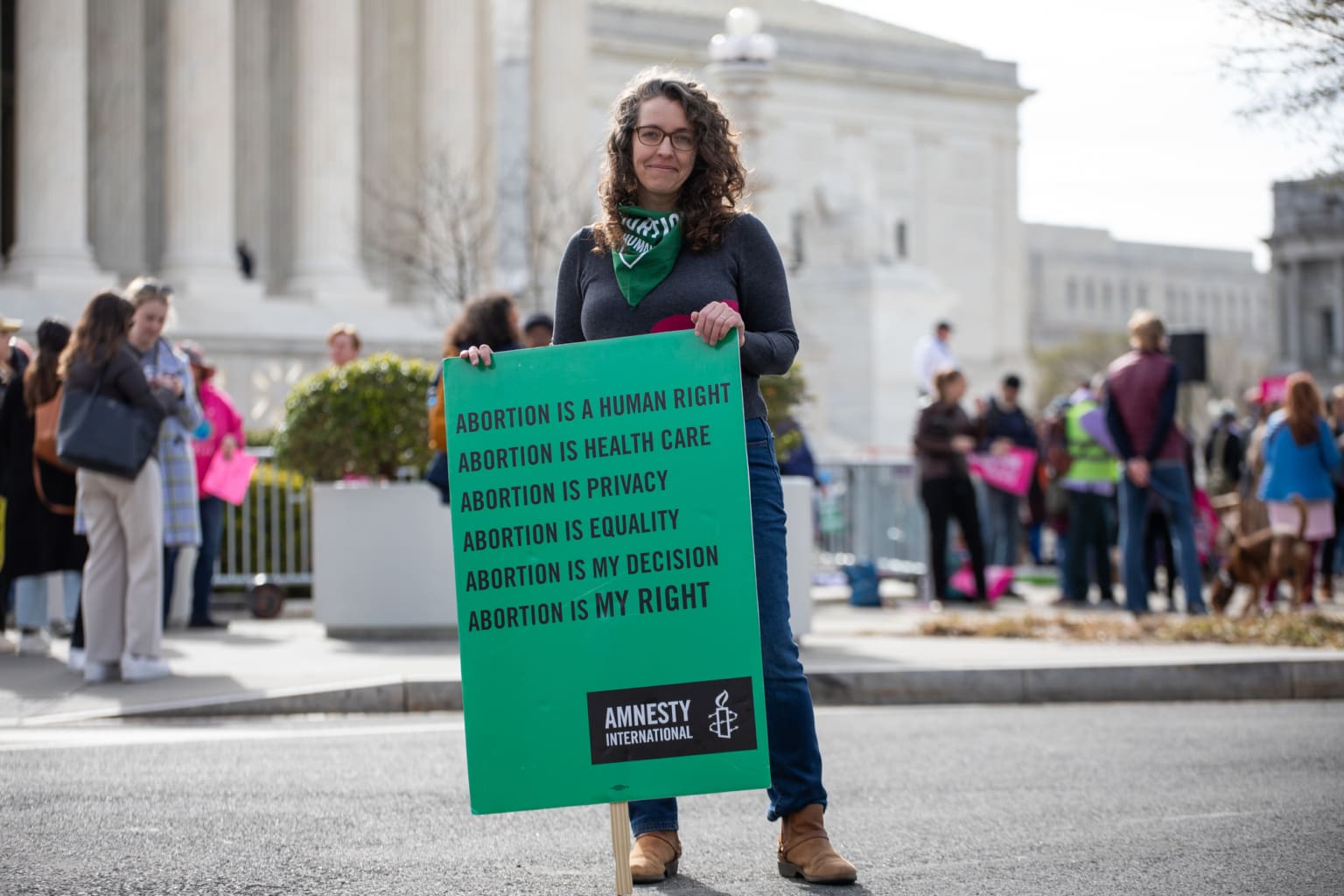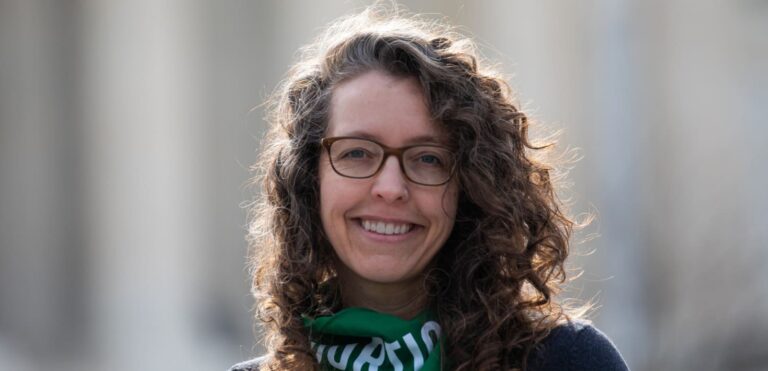Tara Demant is director of programs at Amnesty International USA, where she works on issues such as gender equality and abortion rights. Last year was her toughest yet, as human rights in the US saw major setbacks.
In this interview, she talks about the impact abortion bans have on people in the United States, how she advocates for change at every level, and why the hope and tenacity of activists across the country drives her…
What has been the most memorable event in your community this year and why?
There is an astonishing backlash against gender equality across the Americas, including in the United States. One of the most visible examples of this backlash is the attack on abortion rights across the region.
How was it producing it?
Honestly, it’s exhausting. The attacks are relentless. Anti-abortion activists are moving state by state to further ban and criminalize abortion. These attacks on abortion go hand in hand with broader anti-gender attacks across the country, including vicious attacks on transgender children. It’s devastating. It has real effects on people. And it’s extremely taxing emotionally.
But it’s also a privilege to work in this field. There’s a lot of hope and resilience in the community. People come together every day for each other, for their friends and neighbors, and for people they’ll never meet. In the toughest places, in the most conservative states, people are the bravest. Fighting alongside these incredible activists inspires a lot of hope. And no matter what happens politically, we are determined. We will never stop fighting. And that determination is where I get a lot of my energy.
What does your job involve?
We fight abortion bans across the country and work to further protect abortion rights at many levels. Our research documents the impacts of abortion bans and restrictions, revealing the real human consequences of these human rights violations. We help connect activists around the world with local activists. It creates unity and learning, and really fuels our work at home. And we lobby the federal government. I spend a lot of my time educating Congress about abortion and encouraging the Administration to take every action possible to protect abortion rights.
But we also know that this is where the fight is right now, which is at the state level. The Supreme Court’s decision overturning Roe left abortion rights entirely up to the states, and we’ve had to quickly adjust how we, as an international human rights organization working at the national level, try to make a difference.
We give activists in every state the tools to advocate within their state and their community. We lobby state officials, we put abortion in the conversation, we put abortion rights at local council meetings, we make sure abortion is on the agenda at local government meetings. And we invest in states where voters have a direct say, like in Arizona, fighting to pass a ballot measure that would protect abortion in the state constitution. And we make sure Amnesty defends abortion rights in the United States through research, lobbying and action around the country and around the world. And that matters. We can win, and we will win.
Can you share a personal anecdote about a moment that moved you this year?
We spoke with doctors who were forced to turn away patients desperate for treatment, we heard from families who tried to figure out how to travel thousands of miles to get the care their loved ones needed, and we ultimately heard the stories of people who were forced by the state to give birth because they couldn’t get abortion care.
But we also witnessed stories of hope and stories of incredible resilience, stories of people in every state in the country and every country in the Americas standing up for their rights, fighting back and fighting for each other.
Texas has some of the most extreme anti-abortion laws, including a bounty hunting system for those who “facilitate” abortions, but activists don’t back down. They work every day to get people the information and care they need, even if it means traveling outside of their state. They also support each other in the face of relentless political attacks and threats to their safety and freedom.
What are the most pressing human rights issues in your region/area of practice that we should be aware of?
There is a very dangerous backlash against gender equality in the United States, across the region and around the world. The anti-gender movement in the United States represents a very minority voice, but it is very powerful, very well-funded and very well-organized.


Tara Demant is Director of Programs at Amnesty International USA, where she works on issues such as gender equality and abortion rights. Last year was her toughest yet, as human rights in the United States went through a major setback. (Amnesty International USA)
And there is inter-national and cross-border coordination with common strategies and goals that challenge hard-won gains towards gender equality on multiple levels. This includes an attack on the very concept of gender, promoting a world where only so-called “traditional families” and stereotypical gender roles are accepted and protected. This means controlling women’s choices and actions, restricting people’s reproductive autonomy by limiting access to abortion, contraception and sex education, and completely excluding LGBTQIA+ people. We take this threat very seriously and must fight it at every turn.
Why should people continue to support Amnesty and its work?
The fight for abortion rights doesn’t end with an abortion. Every person’s autonomy is at stake. We continue to be in this fight every day, even when it doesn’t make the front pages of the news. We work together in communities around the world to defend these rights and protect our rights. We’re out there. And we can do so much more, and grow so much more, when people join us in this fight.
We will keep fighting in every state in this country and every country in this region because we believe in the human rights of all people, we believe in the future we’re building together, and we know that together we can prevail.
What are your hopes for the future?
I believe in the future we are building. And I’m not alone in this belief. All across the country, people are fired up, especially about abortion rights. I believe in a future where the law protects our rights, where women and reproductive people have control over their bodies and their lives, where LGBTQIA+ people can live safely and authentically, where we protect and support each other, and understand that our freedoms are interconnected.
It can be hard to be hopeful when politics are dangerous and twisted, but no matter whether I feel optimistic or pessimistic on any given day, I am determined to build the future.
Follow Tarah Demant on X and LinkedIn.

